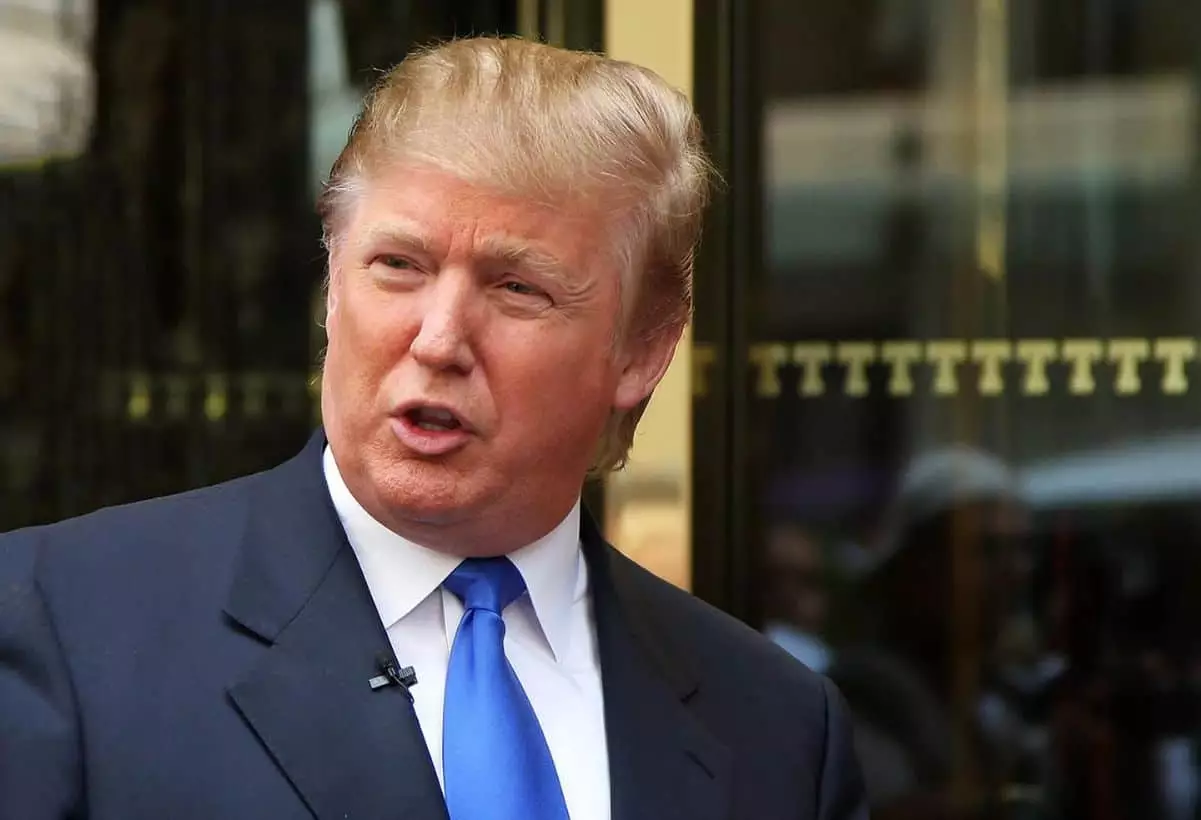In what many perceive as a direct affront to economic prudence, President Donald Trump’s recent proposal for the establishment of a strategic cryptocurrency reserve has stirred controversy and distrust. Representative Gerald E. Connolly, a prominent figure in the House Oversight and Government Reform Committee, has emerged as an outspoken critic. His demand for the immediate cessation of efforts aimed at creating this reserve should serve as a wake-up call for all concerned citizens. This initiative, supposedly aimed at bolstering America’s position in digital finance, seems more like a thinly veiled attempt to enrich Trump and his financial allies. A sound financial policy does not ignore conflicts of interest that can undermine the fabric of our democratic principles.
Conflict of Interest: The Trump Connection
At the heart of Connolly’s objections lies an unsettling reality: Trump’s personal financial interests are deeply entwined with the cryptocurrency landscape he wishes to legislate. The World Liberty Financial Initiative (WLFI), which Trump is linked to, stands to benefit immensely from any government-sanctioned boost in cryptocurrency valuation. This poses a fundamental question: how can we trust policies that emerge from a sphere punctuated by personal stakes in financial success? If the intent behind the reserve is to drive up asset values that directly enrich the president, then we are not discussing economic policy; we are delving into the murky waters of self-serving governance.
Furthermore, the administration’s association with speculative ventures, like the memecoin Official Trump (TRUMP), raises eyebrows. Critics have rightfully termed it a money-making brashness, while Connolly warns that the financial well-being of the president’s ventures leans on the volatility of these cryptocurrencies. In a landscape already rife with uncertainty, is it prudent for our leaders to be involved in such gambles?
Lack of Oversight: Sidestepping Congressional Authority
Adding insult to injury is the manner in which this initiative is being pushed forward. The executive order signed by Trump, which set the stage for the creation of a federal Bitcoin reserve, was executed without the necessary congressional authorization, raising significant concerns about accountability. When a sitting president bypasses legislative input, it sends alarm bells ringing. This not only jeopardizes transparency but also fosters an environment where financial policies can be formulated on whims rather than through comprehensive scrutiny. How can we call ourselves a democracy when fundamental checks and balances are upended?
Connolly’s call for a briefing on the “dumbest idea”—as dubbed by a Federal Reserve official—signals a growing discontent among lawmakers and financial experts. With many stakeholders left in the dark, the crafting of such pivotal policies appears both reckless and irresponsible. We must remember that governance is not a platform for personal gain; it should prioritize public welfare.
The Ripple Effect: Market Reactions in Disarray
Markets have not taken kindly to the turbulence created by Trump’s unilateral actions. Following the announcement of the strategic Bitcoin reserve, digital assets saw a steep decline, exemplified by Bitcoin plummeting from over $93,400 to about $77,234 in less than a week. If the government wades into markets without sound policy and justification, it risks creating a fragile investor sentiment that can collapse at any moment. Other cryptocurrencies, including Ethereum and XRP, followed suit, showcasing the chaotic fallout from a poorly conceived proposal. The fragility of this market begs the question: can we allow a few individuals’ interests to dictate financial stability for millions?
The Stakes: Averting Economic Crisis
When we talk about financial stability, we’re not merely engaging in a conversation about numbers; we are discussing livelihoods and futures. Trump’s current approach, driven by personal interests shrouded in poorly defined policy, stands as a threat to economic stability—one that could spiral out of control if not held in check. By prioritizing personal gain over public welfare, the stakes are being raised dangerously high, leaving citizens vulnerable to the repercussions of speculative risks that are not theirs to bear.
As the debate around Trump’s cryptocurrency policies escalates, it becomes clearer that this is not simply a political issue—it is a matter of principle. The need for transparent governance guided by the greater good has never been more pressing. In the midst of shifting economic landscapes, we must hold our leaders accountable to ensure their actions align with the interests of those they are meant to serve. The time for scrutiny is now, as the future of our economy hangs in the balance.















